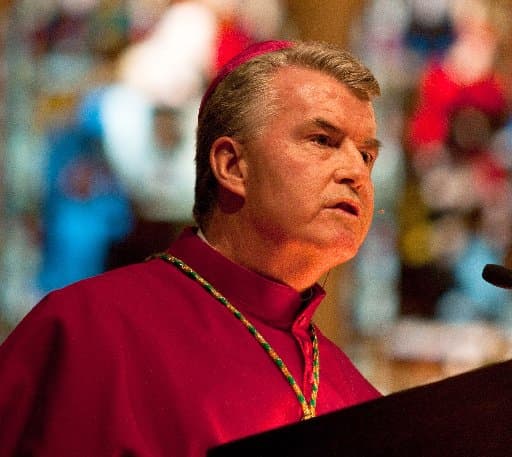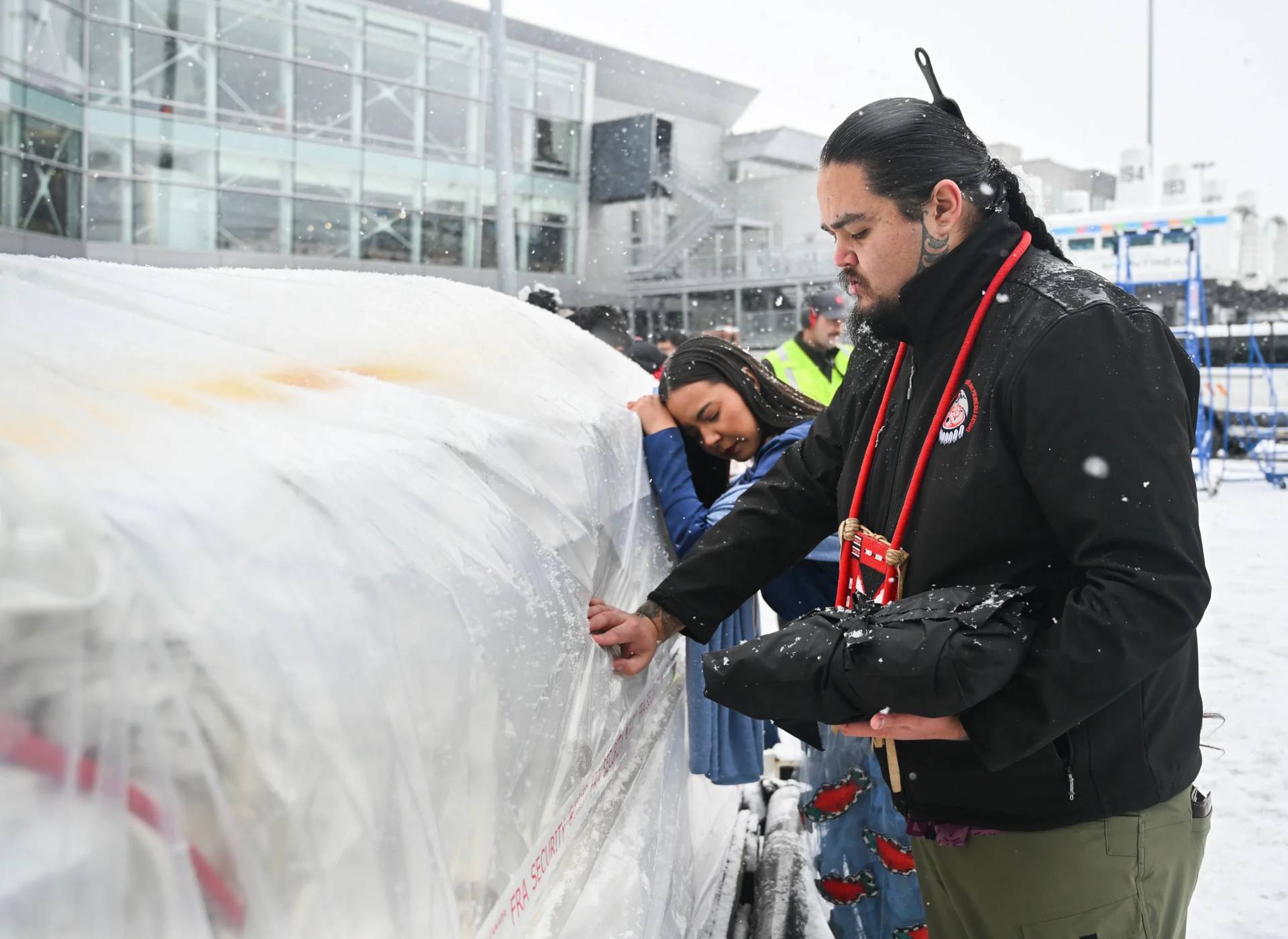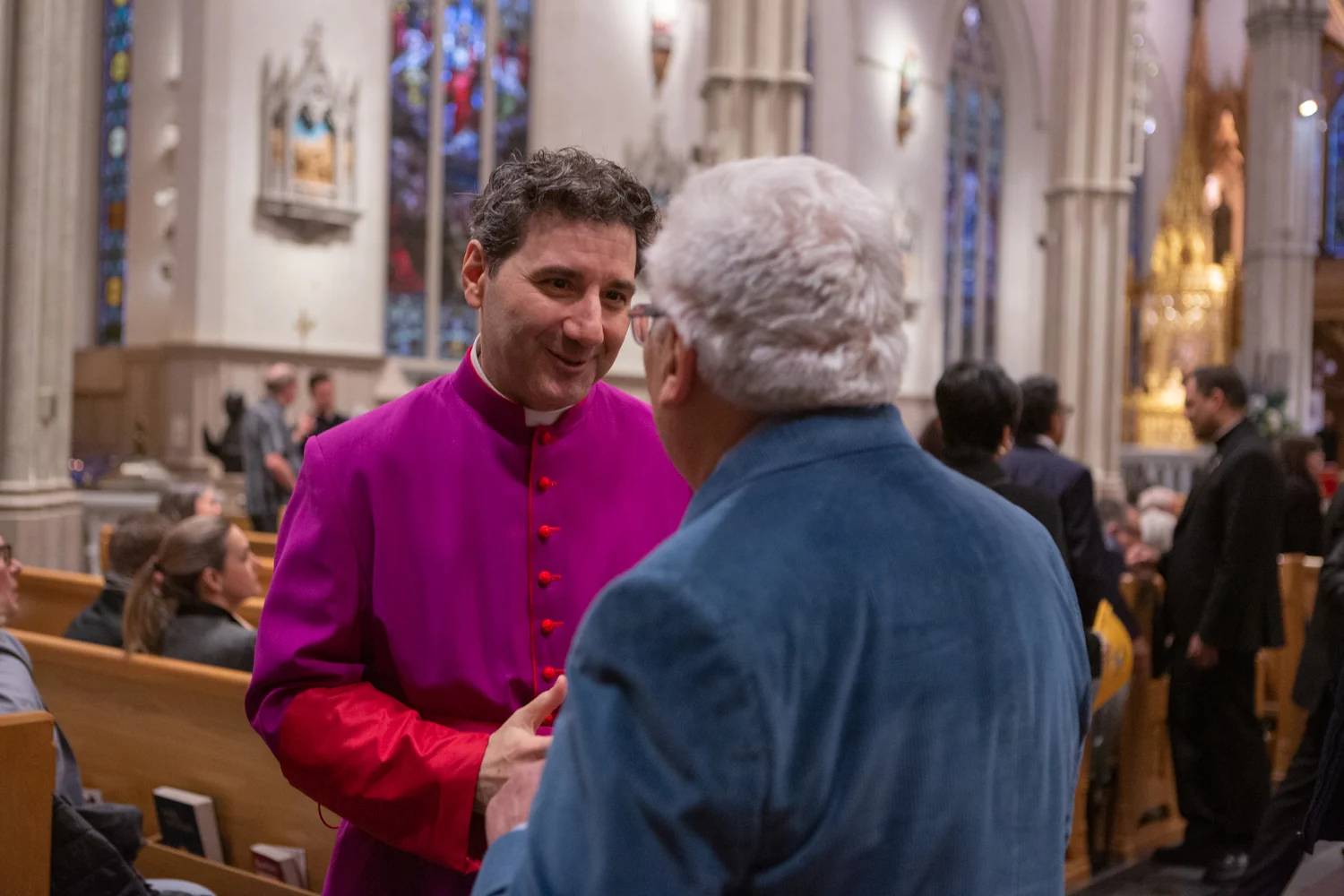NEW YORK – When it was announced on Oct. 16 that Bishop William McGrattan of Calgary, Alberta, was elected the next president of the Canadian Conference of Catholic Bishops, he was in Rome participating in the Synod of Bishops on Synodality, and he’s still there now.
With that in mind, perhaps it’s not a coincidence that in a recent conversation with Crux on his priorities for the conference over his two-year term, many of his answers went back to applying lessons from the synod process, including structural changes to the CCCB governance model.
In fact, he said applying the principles of synodality to the conference is the top priority.
“[The synod] has a practical application for us as a conference, because we also as bishops are choosing to look at how the CCCB is structured in terms of governance conditions and standing committees,” McGrattan said.
“I think that’s probably the first priority over the next two years is to see how the principles of synodality might be more fully expressed as we go through this review,” he said.
McGrattan was appointed Bishop of Calgary in 2017, after serving as the Bishop of Peterborough, Ontario, and before that as an auxiliary bishop of Toronto. He has been a member of the CCCB Executive Committee since 2017, and for the last two years was the conference’s vice president as well.
Another conference priority, McGrattan said, is addressing aspects of secularization in Canada, specifically the issue of assisted suicide and euthanasia. He said that in the coming year there will be a symposium planned in conjunction with the United States Conference of Catholic Bishops and the Pontifical Academy for Life in Rome to bring together experts to address these issues not only from a philosophical and theological perspective, but also medical.
Another conference priority is preparing for the Jubilee year in 2025, which Pope Francis has given the motto “Pilgrims by Hope,” which McGrattan said contains great “opportunities that can strengthen the life of the faith in parishes and dioceses.” He also brought up strengthening Caritas Canada, the conference’s official international development organization, and continuing to work with indigenous communities.
The Canadian bishops have announced that its Indigenous Reconciliation Fund now stands at $11 million, “and is well on track to exceed its five-year target” of $30 million. The bishops also plan to reconfigure its Indigenous Council to make the ratio of members three indigenous representatives to one bishop.
What follows is more from the Crux conversation with McGrattan on potential structural changes to the CCCB, indigenous reconciliation efforts, secularization, and the synod. The conversation has been edited for clarity and length.
Crux: What kind of structural changes to the conference do you envision, particularly in the vision of synodality? Could there be more lay involvement?
McGrattan: We are looking at the restructuring of the Catholic Indigenous Council, so we are seeing the importance of involving laity, but also our indigenous communities, so that’s a concrete example.
We’re also looking at our commissions. Are our commissions meeting the current and evolving needs? We have Justice and Peace. We also have Catechesis and Evangelization. Have the mandates of those particular commissions been addressing the emerging issues or areas that we need to promote? It’s kind of a self-examination, but at the same time, we do have to be open to what are these principles of subsidiarity, of consultation, co-responsibility, and I think that it’s a very opportune time that we have undertaken this as we are learning through this synod that there are these principles.
What is the status of the conference’s indigenous reconciliation efforts? What are the next steps?
We have begun to implement what we committed to in previous plenaries.
There’s the Indigenous Reconciliation Fund, and the impact of that is that those funds are going back directly to communities and dioceses to which committees of reconciliation – I’m using my own diocese as an example – have been working with various leaders in the indigenous communities at the local level, and I think that is something that has been spurred on by our decisions at a national level.
There’s the restructuring of how we’re going to be looking at Indigenous issues, but also I think, at the local level of our dioceses, these committees are actually on the ground, making what I would say are steps towards understanding reconciliation, [asking] what are the issues facing these communities and concretely addressing them. [That includes] the money that has been raised, but more importantly through the work and the discussions that have gone into selecting these projects, and identifying them and then requesting funds to put towards these initiatives.
So, it’s really grassroots. I see it as the principle of subsidiarity at work, but that was part of the envisioning of the Indigenous Reconciliation Fund, and I think at the level of the conference we also see the need for an organizing group and body that has more lay and indigenous voices.
Bishop Guy Boulanger was recently appointed to lead both the Dioceses of Amos and Rouyn-Noranda, and said that is the first step towards an eventual merger of the dioceses. How is that indicative of the state of Catholicism in Canada? Is the number of Catholics declining?
Those discussions, maybe not at a national level, but in terms of regions – Western Canada, Ontario, Quebec – that secularization and the impact that COVID had in terms of isolating people and also restricting access, was very severe in certain parts of Canada, such as Quebec, and so these experiences and these realities I think are things the bishops are aware of and being discussed.
Regionally, the situation that you raised is in Quebec, and it has been adversely affected by the aggressive secularism that’s found within certain parts of Canada, it has impacted the number of people who are coming to participate on a regular basis in our parishes and in our diocese.
In the Diocese of Calgary, we have continued from the synod listening, and we have just launched a renewal in the diocese for the next five years to specifically address those issues and to strengthen parish communities, to invite people to rediscover their faith. It’s a very simple focus on being a Church of forming missionary disciples, being a Church of encounter and witness to strengthen the family.
This has come because of the synod listening, but also the discussions that arose around the effects of COVID-19 on our parishes attendance, and so as a result of that we’ve tried to move forward in a positive way, and I’m hoping it will bear fruit over the next number of years. I think we can sit back and analyze some of these issues, but I also think that we need to address it in the way that allows the gospel and our faith be reinvigorated in the life of our dioceses and parishes.
Taking over as the president, I would like to see that same spirit and desire for renewal within the conference and also in the dioceses working with my brother bishops.
A lot of what you’ve brought up you’ve connected to the synod. What have you taken away from the synod process so far?
The Holy Father has said he wants to maintain a certain level of confidentiality, but generally, through this experience what I’ve come to see is that spiritual prayer, and the honesty of discussing and expressing our faith and our views, is something that I think the church is ready for. It’s something that allows voices and experiences of the universality of our church to be received, maybe listened to, and it’s actually been a learning experience for me so far.
When I think back, the most important thing is what we learn, and how open we are to that process of learning, and I think that’s part of the gift and the grace is that we are learning from each other as we listen to these discussions and we talk about these issues. They’ve been fruitful, and sometimes I’ve been very edified by the expression and the witness of faith that’s heard in comments and discussions.
Follow John Lavenburg on X: @johnlavenburg















